第53章
It is from this beaten, turnpike road, that the favoured few of mankind are for ever exerting themselves to escape. The multitude grow up, and are carried away, as grass is carried away by the mower. The parish-register tells when they were born, and when they died: "known by the ends of being to have been." We pass away, and leave nothing behind. Kings, at whose very glance thousands have trembled, for the most part serve for nothing when their breath has ceased, but as a sort of distance-posts in the race of chronology. "The dull swain treads on" their relics "with his clouted shoon." Our monuments are as perishable as ourselves; and it is the most hopeless of all problems for the most part, to tell where the mighty ones of the earth repose.
All men are aware of the frailty of life, and how short is the span assigned us. Hence every one, who feels, or thinks he feels the power to do so, is desirous to embalm his memory, and to be thought of by a late posterity, to whom his personal presence shall be unknown. Mighty are the struggles; everlasting the efforts. The greater part of these we well know are in vain. It is Aesop's mountain in labour: "Dire was the tossing, deep the groans:" and the result is a mouse. But is it always so?
This brings us back to the question: "Is there indeed nothing new under the sun?"
Most certainly there is something that is new. If, as the beast dies, so died man, then indeed we should be without hope. But it is his distinguishing faculty, that he can leave something behind, to testify that he has lived. And this is not only true of the pyramids of Egypt, and certain other works of human industry, that time seems to have no force to destroy. It is often true of a single sentence, a single word, which the multitudinous sea is incapable of washing away:
Quod non imber edax, non Aquilo impotens Possit diruere, aut innumerabilis Annorum series, et fuga temporum.
It is the characteristic of the mind and the heart of man, that they are progressive. One word, happily interposed, reaching to the inmost soul, may "take away the heart of stone, and introduce a heart of flesh." And, if an individual may be thus changed, then his children, and his connections, to the latest page of unborn history.
This is the true glory of man, that "one generation doth not pass away, and another come, velut unda supervenit undam; but that we leave our improvements behind us. What infinite ages of refinement on refinement, and ingenuity on ingenuity, seem each to have contributed its quota, to make up the accommodations of every day of civilised man; his table, his chair, the bed he lies on, the food he eats, the garments that cover him! It has often been said, that the four quarters of the world are put under contribution, to provide the most moderate table. To this what mills, what looms, what machinery of a thousand denominations, what ship-building, what navigation, what fleets are required!
Man seems to have been sent into the world a naked, forked, helpless animal, on purpose to call forth his ingenuity to supply the accommodations that may conduce to his well-being. The saying, that "there is nothing new under the sun," could never have been struck out, but in one of the two extreme states of man, by the naked savage, or by the highly civilised beings among whom the perfection of refinement has produced an artificial feeling of uniformity.
The thing most obviously calculated to impress us with a sense of the power, and the comparative sublimity of man, is, if we could make a voyage of some duration in a balloon, over a considerable tract of the cultivated and the desert parts of the earth. A brute can scarcely move a stone out of his way, if it has fallen upon the couch where he would repose. But man cultivates fields, and plants gardens; he constructs parks and canals; he turns the course of rivers, and stretches vast artificial moles into the sea; he levels mountains, and builds a bridge, joining in giddy height one segment of the Alps to another; lastly, he founds castles, and churches, and towers, and distributes mighty cities at his pleasure over the face of the globe. "The first earth has passed away, and another earth has come; and all things are made new."
It is true, that the basest treacheries, the most atrocious cruelties, butcheries, massacres, violations of all the restraints of decency, and all the ties of nature, fields covered with dead bodies, and flooded with human gore, are all of them vulgar repetitions of what had been acted countless times already. If Nero or Caligula thought to perpetrate that which should stand unparalleled, they fell into the grossest error.
The conqueror, who should lay waste vast portions of the globe, and destroy mighty cities, so that "thorns should come up in the palaces, and nettles in the fortresses thereof, and they should be a habitation of serpents, and a court for owls, and the wild beasts of the desert should meet there," would only do what Tamerlane, and Aurengzebe, and Zingis, and a hundred other conquerors, in every age and quarter of the world, had done before. The splendour of triumphs, and the magnificence of courts, are so essentially vulgar, that history almost disdains to record them.
And yet there is something that is new, and that by the reader of discernment is immediately felt to be so.